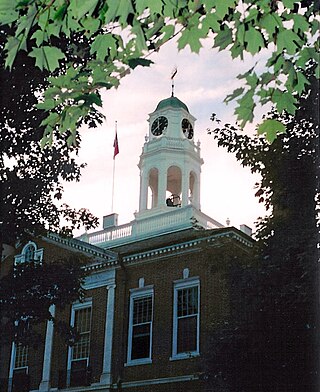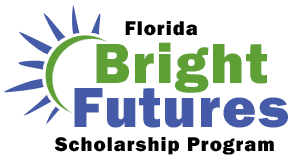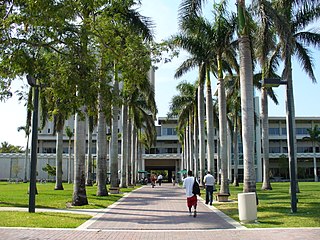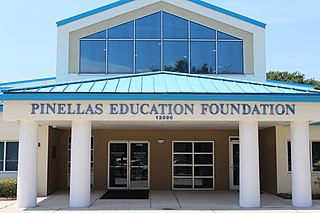A school voucher, also called an education voucher in a voucher system, is a certificate of government funding for students at schools chosen by themselves or their parents. Funding is usually for a particular year, term, or semester. In some countries, states, or local jurisdictions, the voucher can be used to cover or reimburse home schooling expenses. In some countries, vouchers only exist for tuition at private schools.
School choice is a term for education options that allow students and families to select alternatives to public schools. It is the subject of fierce debate in various state legislatures across the United States.

A student loan is a type of loan designed to help students pay for post-secondary education and the associated fees, such as tuition, books and supplies, and living expenses. It may differ from other types of loans in the fact that the interest rate may be substantially lower and the repayment schedule may be deferred while the student is still in school. It also differs in many countries in the strict laws regulating renegotiating and bankruptcy. This article highlights the differences of the student loan system in several major countries.

A private school is a school not administered or funded by the government, unlike a public school. Private schools, are schools that are not dependent upon national or local government to finance their financial endowment. Unless privately owned they typically have a board of governors and have a system of governance that ensures their independent operation.

Bright Futures is a scholarship program in the state of Florida. It is funded by the Florida Lottery and was first started in 1997.
Zelman v. Simmons-Harris, 536 U.S. 639 (2002), was a 5–4 decision of the United States Supreme Court that upheld an Ohio program that used school vouchers. The Court decided that the program did not violate the Establishment Clause of the First Amendment, as long as parents using the program were allowed to choose among a range of secular and religious schools.
The Habele Outer Island Education Fund is a South Carolina–based charitable organization serving K-12 aged students in Micronesia. Habele's initial geographic focus was the so-called "Outer Islands" of Yap State as well as lagoon and outer islands in neighboring Chuuk State in the Federated States of Micronesia. It now serves students of all backgrounds throughout the Freely Associated States.

Michelle Ann Rhee is an American educator and advocate for education reform. She was Chancellor of District of Columbia Public Schools from 2007 to 2010. In late 2010, she founded StudentsFirst, a non-profit organization that works on education reform.

The Florida education system consists of public and private schools in Florida, including the State University System of Florida (SUSF), the Florida College System (FCS), the Independent Colleges and Universities of Florida (ICUF) and other private institutions, and also secondary and primary schools as well as virtual schools.

EdChoice, formerly the Friedman Foundation for Educational Choice, is an American education reform organization headquartered in Indianapolis, Indiana. It was founded in 1996 by economist spouses Milton and Rose D. Friedman. The organization's mission is to advance "school choice for all children" nationwide.
The D.C. Opportunity Scholarship Program provides scholarships to low-income children in Washington D.C. for tuition and other fees at participating private schools. The program was the first Federally funded school voucher program in the United States. It was first approved in 2003 and allowed to expire for the first time in 2009 under the Obama administration. The program was reauthorized under the SOAR Act in 2011, but again defunded at the end of the second Obama presidency. The program was reinstated under President Trump.
In the United States, scholarship tax credits, also called tax credit scholarships, education tax credits or tuition tax credits, are a form of school choice that allows individuals or corporations to receive a tax credit from state taxes against donations made to non-profit organizations that grant private school scholarships. At the start of the 2014–2015 school year, fourteen states had scholarship tax credit programs.
The State of Indiana school voucher movement known as Indiana Choice Scholarships was created in order to address the failings in the public education system. It is the largest school voucher program in the U.S.
The Josiah Bartlett Center for Public Policy (JBCPP) is a New Hampshire-based free market think tank.
Cristo Rey Tampa Salesian High School is a Catholic college-preparatory school and work study program sponsored by the Salesians of Don Bosco. Opened in 2016, it is a part of the national Cristo Rey Network of schools. The school's goal is to give children from lower income families a better chance of getting a college education. To be admitted, students must meet financial need guidelines.

The Pinellas Education Foundation is a nonprofit organization founded in 1986. Based in Largo in Pinellas County, Florida, the foundation's primary aims are to improve educational opportunities in Pinellas County schools and improve the quality of public education. The foundation has raised over $140 million to support students and teachers in Pinellas County. The Pinellas Education Foundation ranked first in an annual nationwide study and ranking of K-12 Education Foundations for three consecutive years, in 2014, 2015, and 2016.
The Pennsylvania school code, section 1327, policy for school choice is, “...to preserve the primary right and obligation of the parent or parents, or person or persons in loco parentis to a child, to choose the education and training for such child.”
School choice in the U.S. state of Florida is a suite of state programs that allow families to use public resources to receive education outside of their neighborhood public school. Florida's Tax Credit Scholarship (FTC) program is the largest of its kind in the U.S., with more students than all but the state's largest school districts.
Espinoza v. Montana Department of Revenue, 591 U.S. ___ (2020), was a landmark United States Supreme Court case in which the Court ruled that a state-based scholarship program that provides public funds to allow students to attend private schools cannot discriminate against religious schools under the Free Exercise Clause of the Constitution.
Carson v. Makin, 596 U.S. 767 (2022), was a landmark United States Supreme Court case related to the First Amendment to the United States Constitution and the Free Exercise Clause. It was a follow-up to Espinoza v. Montana Department of Revenue.







